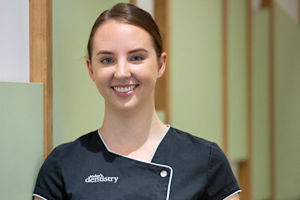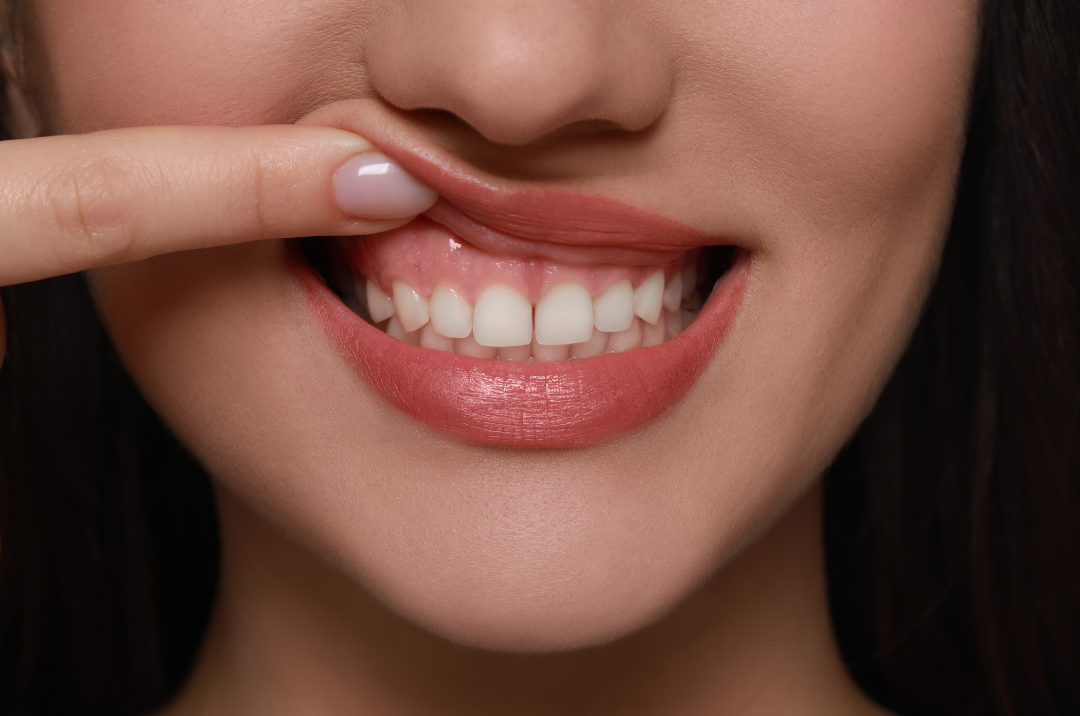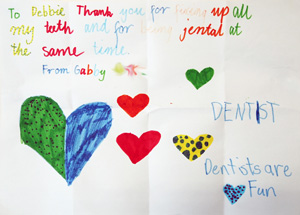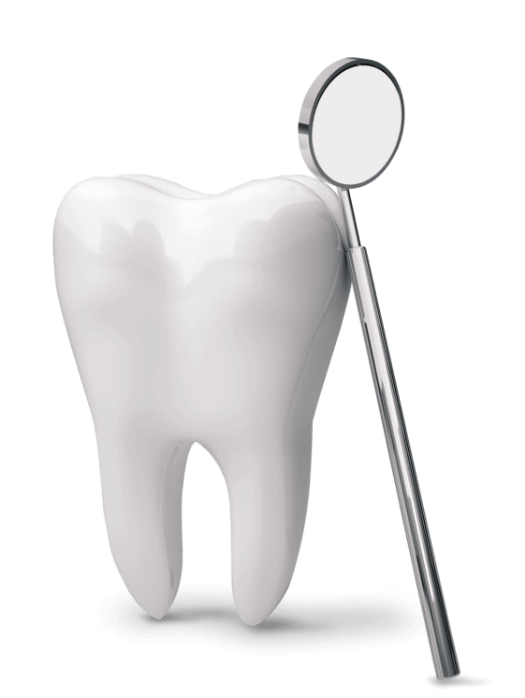
Why do children’s toothpastes often state ‘Do not swallow’?
“My kids are 2 and 3 and I noticed that the children’s toothpaste says ‘Do not swallow’ but they do – is this bad for them?
Is there a better toothpaste option for them?
What do you think of organic toothpaste?”
– Question from Joanne in Seven Hills, Brisbane

When you have fluoride in the water supply, (like we do here in Brisbane), it gives a low dose of fluoride over a long period of time. This also affects the enamel formation of teeth - but in a positive way.
But you can have too much of a good thing…
If you have too much fluoride in your blood then it can disrupt the cells that are forming the adult teeth.
Spitting out toothpaste helps maintain this positive effect of low dose fluoride.
Swallowing toothpaste is not harmful to the rest of the body. So don’t worry – they aren’t being poisoned!
Children’s toothpastes have a lower fluoride concentration for the reasons given above. So the best thing to do is to get the toothpaste appropriate to the age of your child and follow the directions given on the pack.
A baby’s first tooth will usually come through at about 6 months, and it is at this stage the front adult teeth start forming in the gum, then the adult molars follow.
This process of the adult teeth forming in the gum takes about 4 and a half to 5 years and these are the teeth that can be affected by ‘too much flouride’. There are teeth developing after this so we would recommend using the specific toothpaste for the child’s age till about 6 or 7 years of age.
There is a range of organic toothpaste available. Each with differing ingredients to each other, so it is difficult to comment on the group as a whole.
Most of them don’t contain fluoride. Which means you are missing the protection for your teeth that this provides. However the toothpaste we use is only one part of our dental health puzzle. If you have a healthy diet and lifestyle, avoid sugars and there is fluoride in the water etc - then an organic toothpaste may suit you fine.
All these factors come into it. It is best to talk to your dentist about particular products and your individual situation.
One thing we do like about the organic toothpaste is that it doesn’t have Sodium Lauryl Sulphate. Which is an ingredient that scientists are taking a second look at.
Other thoughts about Toothpaste
The latest thing in toothpastes which we am trying at home at the moment, is a Pro-biotic toothpaste. The idea is a nice one, just as you take Pro-biotics to keep the bacteria in your gut balanced, a Pro-biotic toothpaste aims to maintain a balance of the bacteria in your mouth and around your teeth.
The downside is that the consistency is more like mud, it tastes awful and it is very expensive. These things do evolve quickly though so Pro-biotic toothpaste might be one to look out for in the future.



almost luxurious experience.
I highly recommend this dentist, especially if you suffer with anxiety or a fear of dentistry."

Your first visit at Today’s Dentistry is all about creating a Dental Roadmap so you know exactly what condition your teeth and gums are in, and what your options are for treatment.
Your first appointment includes: